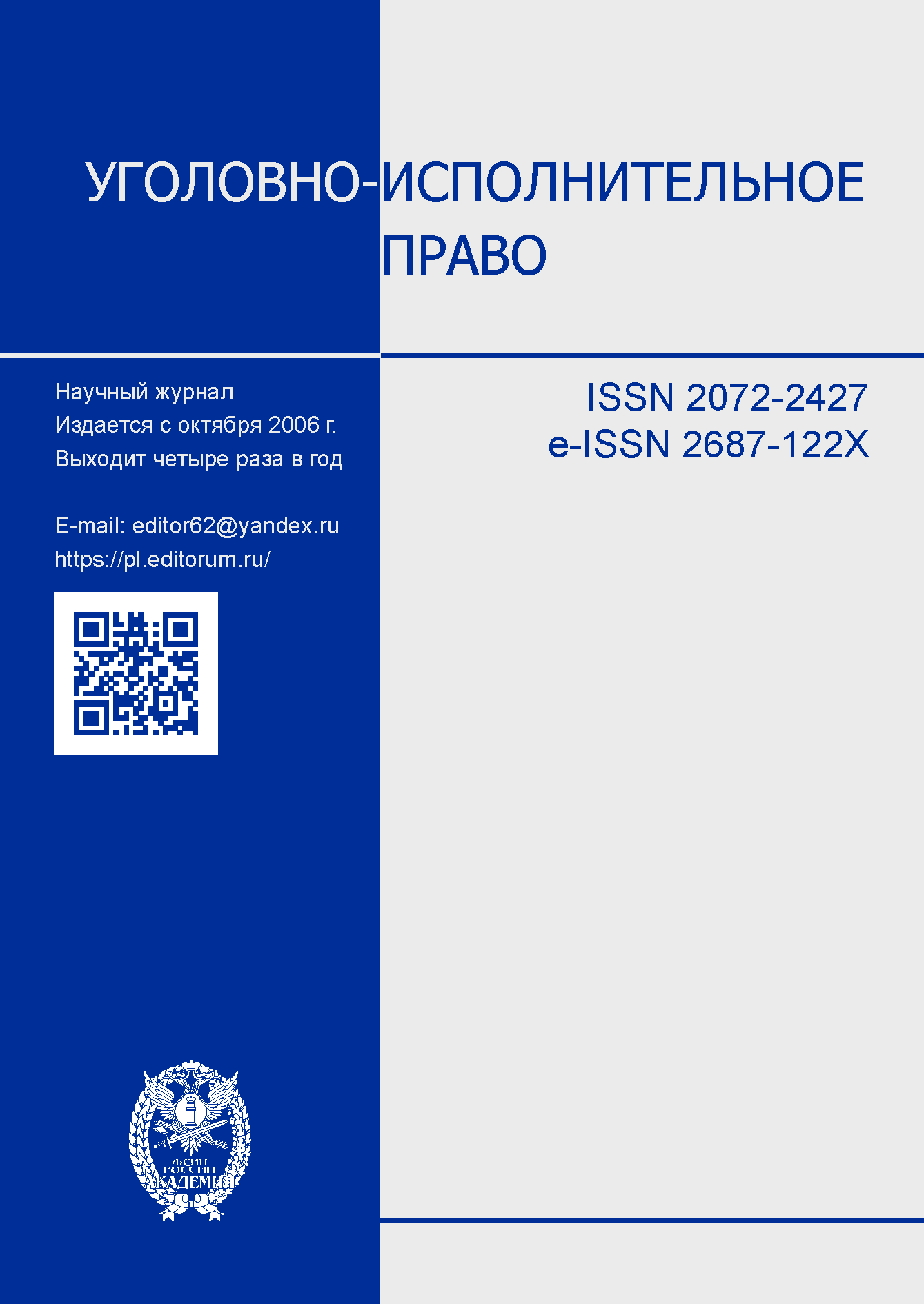UDC 004
UDC 343.2
The paper addresses the problems of criminal punishment and digitalization, which has a modifying effect on all spheres of public life. The spread of information and communication technologies is a harbinger of significant changes in the institution of criminal punishment. The content and possible results of the digitalization of punishment are an urgent research task of the modern science of criminal law. The purpose of the study is to obtain new theoretical knowledge about the prospects of the modifying effect of digital technologies on the institution of criminal punishment. According to the results of the study, the following conclusions were obtained: 1) in modern conditions, it is possible to identify such areas of punishment transformation in a digital society as changing the system of punishments, digitalization of the appointment and execution of punishment; 2) taking into account the development of «big data» technologies, it seems promising to supplement the criminal law with a new type of punishment – a decrease in the rating of public trustworthiness; 3) digitalization creates conditions for the full implementation of a hybrid model Justice; 4) the creation of a closed loop of the information and telecommunications infrastructure of the punishment execution system (with a built-in messenger, e-mail, video visiting service, access to an electronic library, certain news resources and legal systems) seems to be the most optimal solution in strengthening confidence in the institution of punishment in Russia.
criminal punishment, digitalization, digital punishments, the use of digital technologies in sentencing
1. Lopashenko, N. A. (ed.) 2021, Criminal Law. The general part. Punishment. Academic course, in 10 vols, vol. 1, The concept, goals of criminal punishment. The system of criminal punishment, book 2, Goals, system and effectiveness of criminal punishment, Yurlitinform, Moscow.
2. Bright, M. 2002, ‘Surgical Tags Plan for Sex Offenders’, The Guardian, 2002, 17 November, viewed 11 December 2023, http://society.guardian.co.uk/children/story/0,1074,842393,00. html.
3. Smith, R. G. 2007, ‘Crime Control in the Digital Age: An exploration of Human Rights Implications’, International Journal of Cyber Criminology, iss 1(2), pp. 167–179.
4. Fox, R. G. 1987, ‘Dr Schwitzgebel’s Machine Revisited: Electronic Monitoring of Offenders’, Australian and New Zealand Journal of Criminology, iss. 20(3), pp. 131–147.
5. Lebedev, S. Ya. 2021, Criminology of cybersecurity, in 5 vols, vol. 2, Criminal law support of criminological cybersecurity, Prospekt, Moscow.
6. Ruskevich, E. A. 2022, Criminal law and “digital crime”: problems and solutions: monograph, 2nd edn, INFRA-M, Moscow.
7. Lapshin, V. F. 2020, ‘The imposition of criminal punishment by a computer program: legal innovation or degradation?’, Penitentiary Science, iss. 14(2), pp. 192–198.
8. Gasparyan, D. E. & Styrin, E. M. 2020, Applied problems of implementing the ethics of artificial intelligence in Russia: industry analysis and the judicial system, Publishing House of the Higher School of Economics, Moscow.
9. Gesterov, P. V. 2018, ‘The Fourth Industrial Revolution: the transformation of the content of criminal repression’, in Criminal Law: Development Strategy in the XXI century: proceedings of the XV International Scientific and Practical Conference, pp. 623–626, RG-Press, Moscow.
10. Serebrennikova, A.V. 2021, ‘Digitalization of the execution of punishment: state and prospects’, Man: crime and punishment, vol. 29 (1-4), iss. 1, pp. 40–45.
11. Blazheev, V. V. & Egorova, M. A. (eds) 2021, Digital Law: textbook, Prospect, Moscow.











